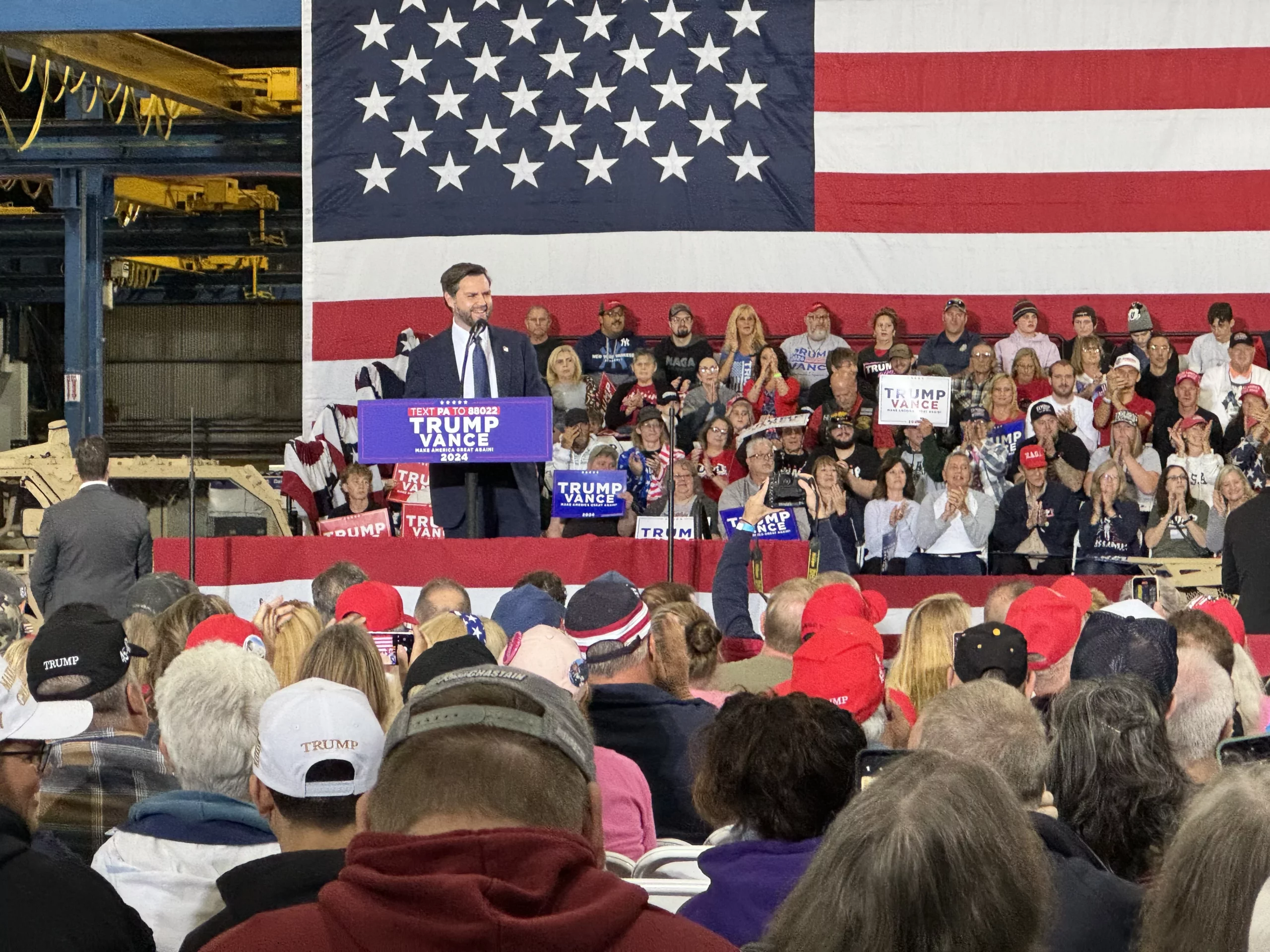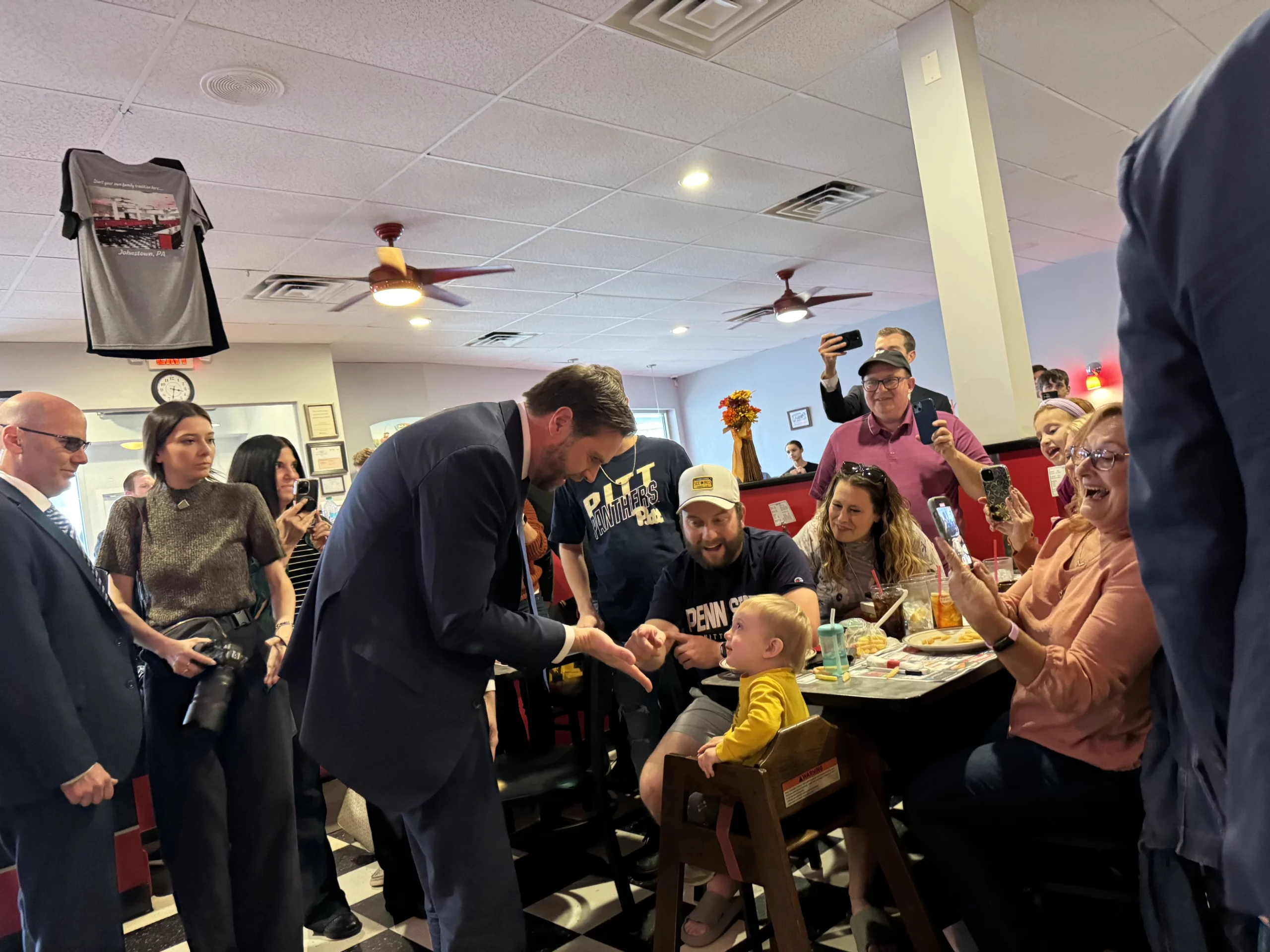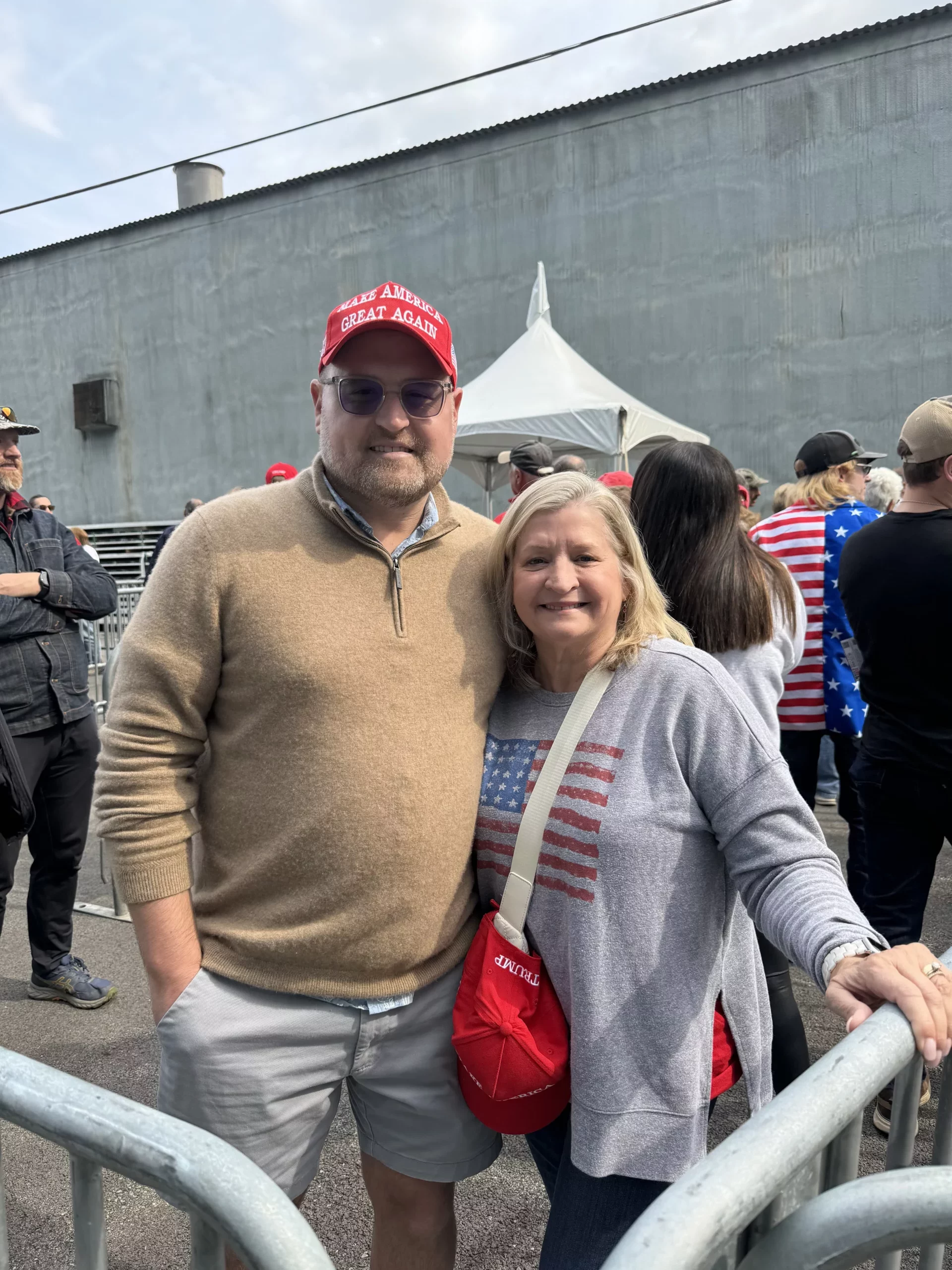JOHNSTOWN, Pennsylvania — The importance of Sen. J.D. Vance’s (R-OH), Republican vice presidential nominee, visit Johnsontown, Pennsylvania, located in Cambria County, on Saturday likely went unnoticed by most of the media.
The Ohio senator campaigned at the home of JWF Industries, which employs nearly 500 people locally. The company began in 1987, at the same time that domestic manufacturing entered its dark ages. It was then that jobs disappeared and people fled the area, and the steel industry and everything that supported it crashed under the pressure of bad trade deals, lack of investment from the plant owners, and automation.

William Polacek, a welder by trade, started the company in a two-car garage as he watched friend after friend, people who took great pride in working with their hands and making things, start to leave because of the lack of jobs. He wanted them to be able to stay.
Today, Polacek has outgrown that two-car garage by 1.3 million square feet and has spent a lifetime elevating skilled workers from within the company into leadership. He located his company here for a reason. It is a place where big things happened, and place matters a lot to people around here.
Back when Polacek was starting to tinker with his business in 1987, the noise level at the Bethlehem Steel Plant was already starting to fade, which was bad. Booming noise, the kind where you can barely hear yourself think, meant work.
By 1992, the plant was well on its way to joining the ranks of the other steel plants in Youngstown, Ohio, Wheeling, West Virginia, and Pittsburgh, which had either closed or had severely cut their production and jobs. The closings left hard-working men and women without purpose. The churches started losing parishioners, the city revenues dried up a whopping 35%, and barbershops and grocery stores started losing customers. This was a tight-knit community that had survived three devastating floods and came back stronger after each one, but it was breaking.
So, just how hard were things here?
An old newspaper clipping showed that overall unemployment in Johnstown hit 17.3%, the highest percentage in the state and the eighth highest in the nation. The population plummeted by 20,000 from its peak, which meant 20,000 sons, daughters, grandchildren, parents, and grandparents were separated or left altogether. The economic collapse broke up tidy, well-kept neighborhoods, caused decay in areas that were on the edge, and did its best to break the hope of an entire community.
By 1992, the Bethlehem plant closed. The company was founded 140 years earlier as the Cambria Iron Company of Johnstown, but it shut down and the last man at the plant turned out the lights.
Johnstown is a beautiful city. Along state Route 56, the Conemaugh River is breathtaking, particularly in October. The descent from Blairsville, Pennsylvania, toward the city, is a burst of brilliant red and yellow leaves whipped up by the wind along a backdrop of persistent green mountainsides still holding onto the last remnants of their summer color.
At his event, Vance discussed the dignity of work, took the time to endorse the candidacy of a local Republican mother of three, Amy Bradley, who is running for state house, and discussed the importance of American manufacturing to places left behind, such as Johnstown. Vance said he grew up in Middletown, Ohio, a city not all that different from Johnsontown, and he saw what happens when hope and prosperity are taken away when a company leaves town.

For forever and a day, Cambria County was the center of the New Deal Democratic coalition. Former President Barack Obama earned its citizens’ vote in 2008 because of the aspirational tone of his “hope and change” slogan. In 2012, when Obama purposely shed New Deal Democrats to embrace a far-left platform of social justice, internationalism, and climate change, he lost those voters and Cambria County, which was one of previously five pro-Obama counties across the state that rejected him for reelection.
Still, voter registration remained decidedly Democratic until 2020, when Republicans made incremental gains. Four years later, though, there is a 46,000-person Republican registration advantage, with a goal of 50,000 by the cutoff date of Oct. 21.
If that happens, and if 75% of those voters show up on Election Day, 69% did in 2020, Cambria County may end up having more of an impact on the results.
Talking to voters in line at the event was enlightening. They shared why they were there, what was on their minds heading into the election, what their thoughts were about Vance when he was picked, and if their impressions of him had since changed.
After dozens of interviews, the answer was almost always the same: Inflation was hurting the family budget, and they were deeply disturbed that the Biden-Harris administration was unmoved for nearly four years in stopping the flow of the unknown in terms of people and drug traffic crossing our border. Another consistent theme was their profound love of their hometown.
As for Vance, he had changed in most of their minds from a “Who?” into a rock star.
Kim Dobbs, 62, was in line with her son Mike Dobbs, 40. Kim Dobbs, who retired a few years ago as the executive director of HOPE, a pregnancy center in Northern Virginia, returned home to Western Pennsylvania when her husband retired from the NCIS.
“When Vance was picked, I was unsure about who he was,” she said. “I had liked Virginia Gov. Glenn Youngkin and Senator Marco Rubio, and to be honest, at first I was lukewarm. … It didn’t take long for that to change as I watched his speech at the convention, then how he has done dozens of interviews where I learned more about him. By the time he did that debate, I was so impressed.”
Mike Dobbs, who is the exact same age as Vance, echoed his mother’s journey, adding he really was impressed with how raw Vance has been on addressing the addiction crisis.

“That is something that is really important to me and how the open border has just made the flow of drugs even more readily available,” Mike Dobbs said.
Both Kim Dobbs and her son said the costs of daily items, such as groceries, hardware, utilities, and gas, have affected their buying power.
“That it has been dismissed for years is insulting. It is very real to everyday people,” said Mike Dobbs.
The most recent Gallup survey, which came out Oct. 14, showed that 90% of U.S. voters view the economy as extremely or very important.
When given the opportunity to ask questions, it was clear both the local and national press had no idea what this election was about. The New York Times, entirely focused on questions about the 2020 election, ran with the headline “On the Trail, Vance Is Dogged by Questions About Trump’s Loss in 2020.”
The local news channel asked about Project 2025, the Heritage Foundation’s agenda that former President Donald Trump, Republican presidential nominee, has denounced scores of times, saying he had nothing to do with it.
Vance was not shy in expressing his exasperation with the media’s lack of questions on the economy, how inflation was affecting people’s lives, and what his plan was to bring back manufacturing to cities such as his hometown and Johnstown.
CLICK HERE TO READ MORE FROM THE WASHINGTON EXAMINER
“I’m a hell of a lot more worried that American citizens can’t afford a good life in their country because Kamala Harris has been the vice president, and that is what I’m trying to change,” Vance said.
The Republican’s words brought the voters to their feet. Why? Vance heard and saw them because he was standing in the remains of the nearly milelong former Bethlehem Steel plant that, similar to so many things around them, are “used to be’s,” and he knows they want better than what they’ve been offered for the past four years.
